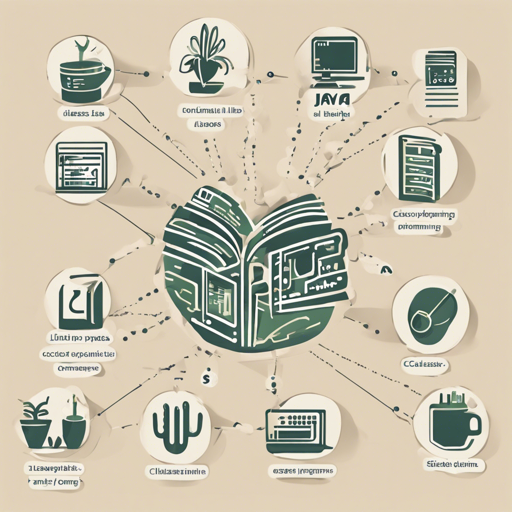Cactoos is an innovative library designed for Java developers who seek a fully object-oriented approach to programming practices. This blog will walk you through the fundamentals of using Cactoos and provide you with helpful troubleshooting tips!
What is Cactoos?
The Cactoos library offers a collection of object-oriented Java primitives. It aims to improve upon existing libraries like JDK, Guava, and Apache Commons by providing a purely object-oriented interface, eschewing the use of static methods that are prevalent in those libraries.
Getting Started with Cactoos
To utilize the Cactoos library, your project must include it as a dependency. Here’s how you can add Cactoos to your project:
Maven Dependency
<dependency>
<groupId>org.cactoos</groupId>
<artifactId>cactoos</artifactId>
<version>0.55.0</version>
</dependency>Gradle Dependency
dependencies {
compile "org.cactoos:cactoos:0.55.0"
}Utilizing Cactoos for Input/Output Operations
Let’s imagine you’re a chef preparing a meal, and the ingredients represent your data. In this analogy:
- The recipe book is like Cactoos, providing structured methods to interact with your ingredients (data).
- Accessing a recipe is like reading a text file, where you gather all necessary information.
- Writing your dish into a serving platter compares to saving data into a file.
Here’s how to use Cactoos for different I/O operations:
Reading a Text File in UTF-8
String text = new TextOf(new File("code/a.txt")).asString();Writing a Text into a File
new LengthOf(new TeeInput("Hello, world!", new File("code/a.txt"))).value();Reading a Binary File from Classpath
byte[] data = new BytesOf(new ResourceOf("foo/img.jpg")).asBytes();Manipulating Strings with Cactoos
The Cactoos library simplifies operations on strings:
Formatting a Text
String text = new FormattedText("How are you, %s?", name).asString();Changing Text Case
new Lowered(new TextOf("Hello"));
new Upper(new TextOf("Hello"));Iterables and Collections
Imagine you’re sorting ingredients (items) in your kitchen before cooking. Similarly, Cactoos enables you to handle collections effortlessly:
Filtering a Collection
Collection filtered = new ListOf(new Filtered(s - s.length() < 4, new IterableOf("hello", "world", "dude"))); Iterating Over a Collection
new And(new Mapped(n - System.out.printf("Item: %s%n", n), new IterableOf("how", "are", "you", "?"))).value();Troubleshooting
If you encounter issues while using Cactoos, consider the following troubleshooting ideas:
- Ensure that the library version in your project matches the required version mentioned in the documentation.
- Check if the Java version is 1.8 or higher, as older versions are not compatible.
- Consult the Cactoos tag on StackOverflow for community support.
For more insights, updates, or to collaborate on AI development projects, stay connected with fxis.ai.
Conclusion
At fxis.ai, we believe that such advancements are crucial for the future of AI, as they enable more comprehensive and effective solutions. Our team is continually exploring new methodologies to push the envelope in artificial intelligence, ensuring that our clients benefit from the latest technological innovations.

